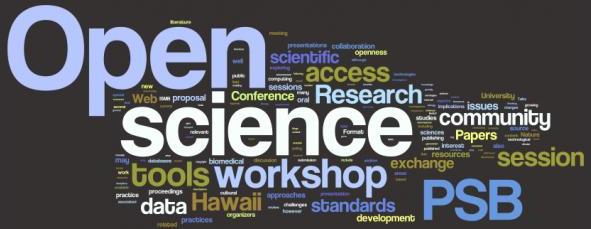What can I do to solve it? When will I have an answer? – Who would not have spent hours looking for answer to such questions? Wouldn’t it be nice to have a platform to discuss such issues and also resolve them with some innovative ideas that we probably never thought of?
Open Science might be the answer to these questions. It could be a simple user-created base where ideas can be generated, shared and amplified.
The Polymath project can be considered as a classic example in this regard. A project which demonstrated that collaborative discussions can help solve problems when individuals could not. For outsiders, the polymath project was a web based platform created with an open invitation to people across the globe to share ideas to solve a critical math problem. Translating such a thing into scientific research would indeed be a blessing in disguise to the community.
The Open Science Project is another interesting initiative in this context. This project involves a group of like minded individuals who have come together with an aim to provide free scientific software, providing a better reach to various tools to analyze scientific data. Another milestone in this arena is the Open Notebook Science, a platform established with a goal to enhance the level of scientific communication. This promotes sharing of scientific data related to a particular research project providing a scope for effective exchange of ideas and promoting collaborative studies.
In academic research, experiments usually fail at some point; all data generated are often considered useless and, therefore, disregarded. Researchers seldom think of publishing such negative results, probably because they’re not used to do it or for a possible auto-censorship when these types of experiments appears. These negative results could be invaluable assets in terms of new ideas’ generators. Fortunately, there is an open science project covering negative results: The All Results Journals, a set of journals focused on publishing negative results, all such experimental data which is often termed NEGATIVE in targeted research. The idea here is to recover the valuable data and make it openly accessible to all.
Higher Education for all is the motto behind the Open University initiative. This mission is delivered through academic research, pedagogic innovation and collaborative partnership thereby widening participation in education. This program has widely been accepted across the United Kingdom and Europe and now is ready to spread all across the globe.
These are a few projects initiated to promote open science. To be a success, every scientist should think on contributing in their own capabilities in their desired areas of interest. This conservative exchange of ideas can definitely bring in a lot of progress and could be the unconventional route to conventional ends.
Please also have a look to this TED talk in Open Science:
Written by Deepak Bhere for The All Results Journals.


Thanks for the ONS mention. I agree that there is a tremendous amount of potentially useful information left out of the publication process. To put a number on it: we found that only about 13% of the reactions in our notebook can be classified as "successful" (includes and isolated yield and full characterization of products).
ReplyDeleteAgree! It is impossible to do science in isolation. Informationist and librarians should support the creation of campuses cyberinfrastructure allowing the open flow of information.
ReplyDelete